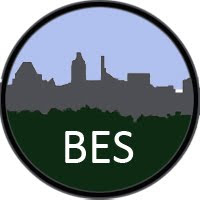This research was supported by funding from the NSF Long-term Ecological Research (LTER) Program. This material is based upon work supported by the National Science Foundation under Grant Nos. DEB-1637661 and DEB-1855277. Any opinions, findings, and conclusions or recommendations expressed in this material are those of the author(s) and do not necessarily reflect the views of the National Science Foundation.
The Baltimore Ecosystem Study has been a National Science Foundation Long Term Ecological Research (LTER) site since 1998. Visit other LTER sites.
 |
 |

Why Do Urban Ecology?
The ecological science of understanding the structure, workings, and change of urban places has three main reasons to be (raisons d’être, if you prefer the French). One is the fact […]
How Does a Long-Term Study Adjust Its Framework while Preserving Data Integrity?
Long-term ecological research is faced with seemingly contradictory constraints: It must maintain a consistent stream of rigorously comparable data over time while at the same time responding to conceptual and […]
Hidden Health Hazards – Combating the crisis of our food and water Featuring Emma Rosi
Host Bonnie Erbé takes an in-depth look at the crisis of antibiotic resistance in food production as well as products in our waterways. Find out why experts are concerned and […]
The Ecologists Turning Vacant lots Into Labs
From The Atlantic Feb 8, 2018 On a frigid day in the West Baltimore neighborhood of Harlem Park, Chris Swan parks his pickup on a block where vacant lots outnumber […]
Seeking Applicants to Join a Research Project Focused on Green Infrastructure
Our research team has four positions available: Three Postdocs and a Research Support Specialist(“RA”) for social-ecological assessment of green infrastructure. Our interdisciplinary, social-ecological research team is pleased to announce the […]
Two Ways to Discover Disturbance
Ecological disturbance is often defined as an event that disrupts the structure of a specific system (Pickett & White, 1985). This kind of material or physical disruption is important because […]
Ecology Of the City is Twenty Years Old
The phrase “ecology ofthe city” was introduced in 1997 as a simple rhetorical device to highlight the novelty of the approach to urban ecology adopted in the initial proposal for […]
Outcomes of an Urban Sustainability Research Network
From 2011 through 2017, the National Science Foundation (NSF) supported a collaborative research project on “Urban Sustainability: Research Coordination and Synthesis for a Transformative Future.” This project was jointly organized […]
What Is a[n Urban] Watershed?
Watershed are urban features Watersheds in Baltimore Watersheds are important parts of both wild and civilized places. In both city and countryside, watersheds express the flow of water, with its […]
Ecology for the city also means with
Ecology In the City The growth of modern urban ecology has been marked by a differentiation among ecology in the city to ecology of the city, to ecology for the […]